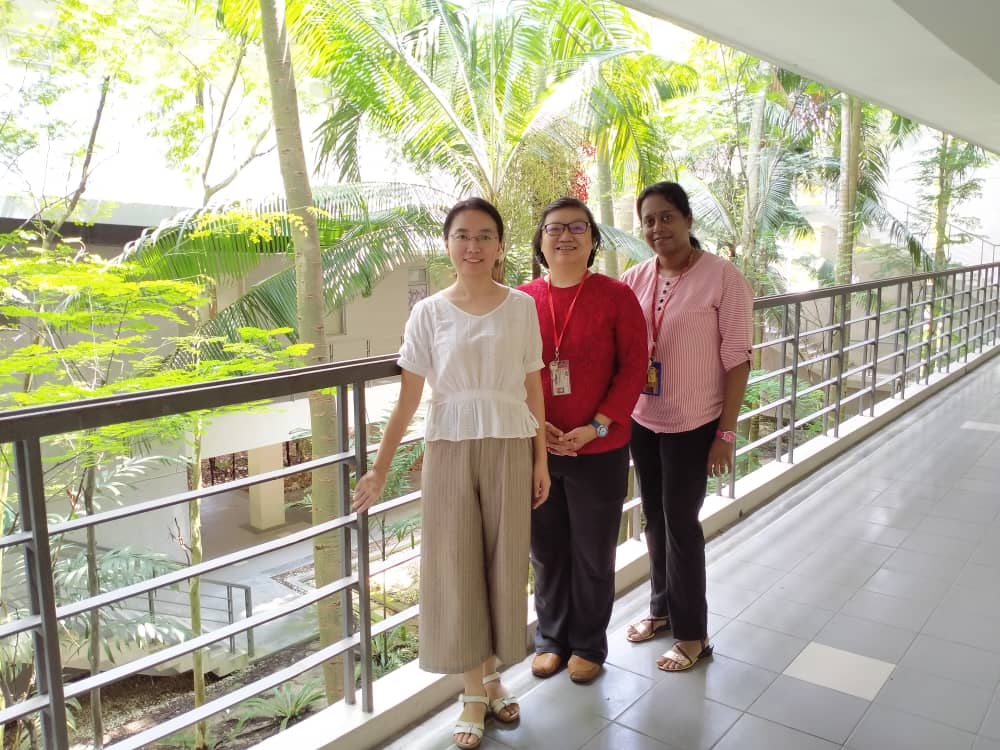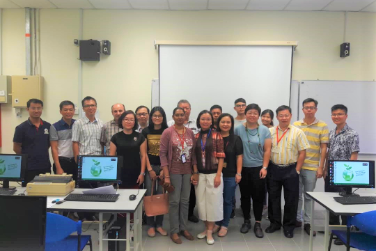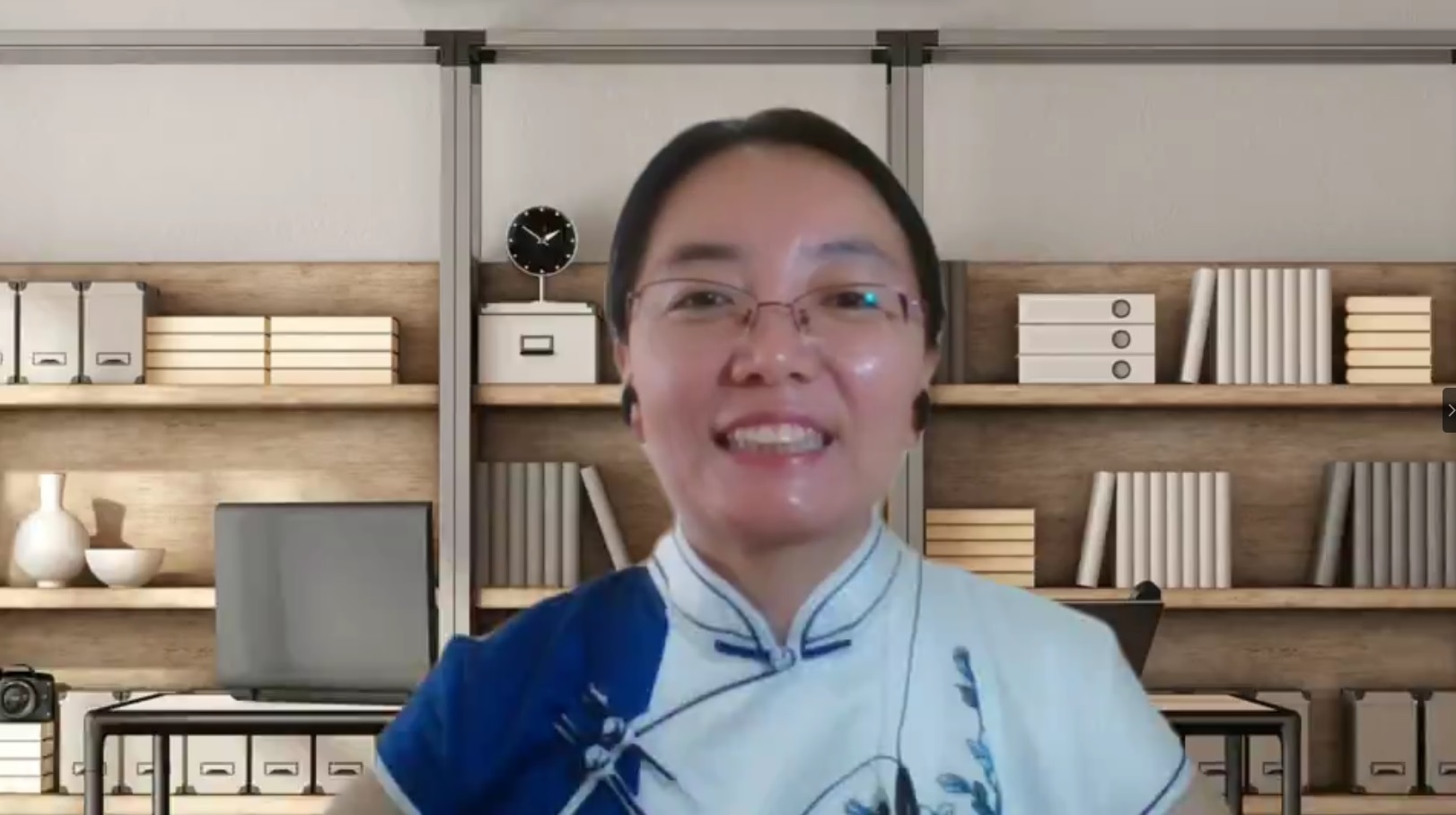
HUC academic visits FBF to exchange expertise

From left: Dr Zhuang, Dr Au Yong Hui Nee and Thavamalar
UTAR Faculty of Business and Finance (FBF) Visiting Scholar Assoc Prof Dr Zhuang Yan had completed her visiting period which started in September 2019. She safely returned to China in late July 2020. The purpose of her visit was to exchange experience in academic, teaching and research, and bring what is worth learning back to HUC to promote the reform of teaching and research of HUC.
Dr Zhuang, who is an academic in the School of Finance of Harbin University of Commerce (HUC), China, graduated from accounting and economics major. She has been teaching finance major from the start of her teaching career in higher education. Her research areas included changes in price, interest rate and exchange rates, monetary policy and financial systems, international finance and risk management.
“HUC’s School of Finance has just established the Chartered Financial Analyst (CFA) programme, and the purpose of my trip includes learning from UTAR FBF on the teaching and curriculum of CFA courses. The last semester, before the outbreak of Covid-19 pandemic, I had the opportunity to attend relevant classes, meet and exchange with lecturers, and exchange teaching materials. As for the research plan, I originally intended to cooperate with FBF’s academic staff on the research paper publication, and the preparation work was completed before January. However, the sudden outbreak of the pandemic has changed my original plan,” she revealed. She has been invited by the UTAR Centre for Economic Studies (CES) to present her first talk, titled “Research on Effecting Factors of Agricultural Product Price in China” on 21 November 2019.

Dr Zhuang (sixth from right) with participants after the research talk which was held in November 2019
“Although the pandemic has affected the rhythm of my initial plan and the initial research had to be put to a halt, for the time being, it has provided me with a new research direction in relation to online teaching during the pandemic, and I had presented it in an online talk organised by the Centre for Learning and Teaching (CLT) and FBF in June. Besides that, I am glad that this visiting period has allowed me to build connections with FBF’s academics. We can continue to keep in touch in the future in research and teaching matters and even daily life. I believe this will provide us with a broader vision and more ideas and help us to find the future direction of research through this interdisciplinary approach,” she added.

Dr Zhuang conducted an online talk titled “The Development of Online Education in China Universities and the Trend of Future Teaching Reform under the Epidemic” during her visiting period
“I went back last December for a short period to provide feedback about the preliminary situation to my university, in order to promote and establish a mechanism for future exchanges between both universities. HUC is looking forward to having a collaboration with UTAR. We originally planned to sign a memorandum of understanding (MoU) in late March, however, due to the pandemic and campus lockdown, the signing plan had to be postponed until teaching and research work resumes as usual. The preliminary cooperation framework, however, has been drawn up,” Dr Zhuang said.
Speaking of the preliminary cooperation framework, she explained, “The collaboration between both universities will start with academic and student exchanges. FBF intends to send students to HUC for internships and we are looking forward to welcoming UTAR students to have a look at the development of HUC and the culture of Harbin. Moreover, students from both universities can exchange and learn from each other. In terms of academic exchange, I have kick-started the process, so it is convenient for other academics to do their exchange in both universities. In the beginning, we thought that these two aspects could be implemented first, but it is impossible for students to go abroad to participate in any student exchanges or study tours at this stage. We may have to wait until next year or further notice for any academic and student exchanges, but the intention of cooperation is already very clear.”
As for why she chose Malaysia as her destination for the academic visit, she explained, “I first thought of coming to Malaysia when applying for the visiting scholar project. I have no experience studying abroad, so I wanted to visit a multicultural place and see a more diverse world; that was when a friend of mine recommended Malaysia. Before applying for the visiting scholar programme, I travelled to Malaysia with my family members to know more about Malaysia. That short trip made me feel that Malaysia is a country worthy for me to stay longer. In a lucky coincidence, I met a UTAR lecturer online and through his connection, I reached UTAR DCinterNet.”
She also expressed her appreciation to her colleagues in DCinterNet and FBF for helping her throughout her stay in UTAR. She emphasised, “I am very grateful to my colleagues from DCinterNet for their approaches and arrangements before and during my stay in UTAR as a visiting scholar and also when preparing to return to China. DCinterNet was the first window for me to reach UTAR. They are a bunch of capable and motivated team. They helped me in my work as well as life; they knew my needs and anxieties and helped me to solve many problems during this time of the period. Because both universities are in a state of mutual understanding and support, I felt relieved when promoting cooperation between the two universities.”
“Moreover, I would like to express my appreciation to FBF members especially FBF Dean Dr Au Yong Hui Nee and Department of Economics Head Thavamalar Ganapathy. They were very attentive to my reception and have well planned my stay here at UTAR. Dr Au Yong gave me many valuable suggestions based on my strength and visiting plan, such as topics to share and ways to convey the research findings. In addition, what gave me a deep experience was the atmosphere around my FBF colleagues and their relationship with one another, which was very good. Everyone was very enthusiastic and they cared for me; they would always invite me to join them for tea or dinner. We chatted over topics like academics, culture, life and many more, which impressed me a lot. The folks in Malaysia are generally very friendly, which made me feel very comfortable during my stay here,” she added.
“I gained a lot during this visiting period because I had the opportunity to step out from a Han-Chinese dominated place to experience different cultures, living habits and behaviour of other ethnic groups, and learnt from Malaysians regarding multiculturalism. Moreover, the climate in Malaysia is different from Harbin, the sunshine hours [daytime] are longer and more comfortable. The local people here are calm and nice, and life in Kampar is also very convenient. This years’ time has brought me a touch of warmth. It is a kind of peace that I seek in my heart, the calmness I long for,” she concluded.
© 2020 UNIVERSITI TUNKU ABDUL RAHMAN DU012(A).
Wholly owned by UTAR Education Foundation Co. No. 578227-M LEGAL STATEMENT TERM OF USAGE PRIVACY NOTICE